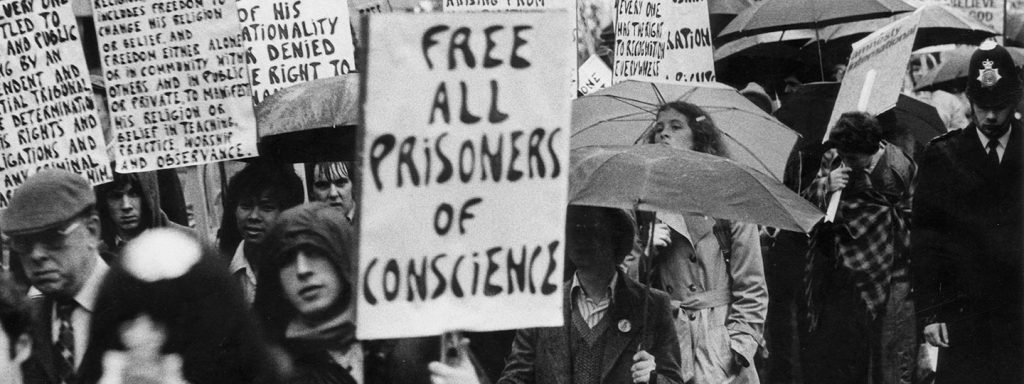Australia/Israel Review
The Last Word: A loss of moral clarity
Mar 1, 2022 | Jeremy Jones

Being student politicians, the hundreds of delegates gathered in the meeting hall took themselves very seriously.
The session they were attending, back in the 1980s, was on foreign affairs, and Australian tertiary students imagined they were changing the world through passing a series of resolutions condemning favoured enemies-de-jour.
It was an exemplary opportunity to virtue signal.
On this day, something unusual was happening, even as on the surface all was normal.
Delegates would propose a resolution, it would be seconded and would be passed by an automatic majority of organised far-leftists and their often-disorganised fellow travellers.
Rather than follow the submitted agenda however, the first countries condemned for a variety of human rights abuses, failings and/or imperfections all began with the letter “A”.
The offences condemned ranged widely – concerning the status of women, integration of minorities, incarceration rates of those with disabilities, persecution of trade unions – and were not presented in any ranking of seriousness or urgency.
Then the countries beginning with the letter B came under attack, then those starting with C.
Some of the organisers of this conference realised something was askew. They were alarmed when countries which were generally reserved for praise, such as Cuba, were subjected to condemnation.
What had happened was this: the foreign policy resolutions submitted in advance of the session essentially attacked Israel, and just Israel, for a variety of alleged sins and evils. Some delegates thought this was unreasonable.
So they picked up a small handbook on human rights distributed by a prominent global NGO which took pride in its ability to note that no country was perfect and that documenting and combatting actual crimes against humanity was more important than demonising any individual alleged perpetrator nation.
The more political of the student politicians eventually realised that a session set up to attack Israel had been hijacked and were able to regain control of the ship, but the conference eventually condemned human rights in every country in the world with names beginning A to F (bad luck for Finland, good luck for Guatemala) and, of course, Israel. In the process, it held itself up to ridicule.
At another student conference in the 1980s, delegates representing Iraq joined student unionists from Asia and the Pacific to talk about international affairs.
The Australian students were generally political radicals in their early 20s, while the far older Iraqi delegates were representing their government.
An observer who had been distributing literature from an international NGO asked permission to put a question to the delegations and, when approved, said to the Iraqis “Why does your student union support your government killing communists?”
The Chair, an Australian far-leftist, scrambled to apologise to the Iraqis for the rudeness of the questioner, but the leader of the Iraqi delegation calmly explained why he thought this was a fair question and was happy to have the opportunity to explain the threat of communism to Saddam Hussein’s Iraq.
The student communists and their allies in a number of the other delegations applauded the Iraqi – a stunning example of hypocrisy and moral cowardice.
In both the above stories, the NGO which was once the best source of reasoned, non-partisan and non-polemic human rights commentary, and brave enough to confront defenders of human rights abuses face-to-face, was Amnesty International.
Today, that organisation, which at one time was able to bring moral clarity to the issue of Prisoners of Conscience and be a major force in exposing, rather than exemplifying, hypocrisy, has exposed its current politicised unseriousness with a poorly researched and even more poorly argued defamation of Israel, declaring it guilty of apartheid. This is not just a sad indictment of contemporary Amnesty International, but a tragic loss to the vital work of global human rights advocacy.
Tags: Amnesty International, Israel, NGOs






